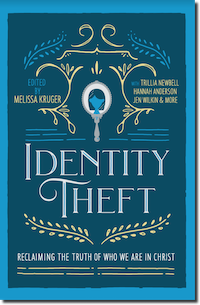One of the basic experiences of exile is the longing for home. Whether it’s Tolkien’s Pippin musing on “second breakfasts” or a refugee missing home as he struggles to adjust to a foreign land, the longing for home defines the hardship of exile. Holidays, with their expectations of joy and togetherness, can magnify the exile’s ache.
The Americans I know in Kenya often enter a trance of sorts as they describe the different types of food they miss from back home. They appear to be momentarily lost in the ether as they describe the cheesy “this” or the crunchy “that” before they eventually come back down to earth or, more specifically, down to Kenya.
While some of our longings are little more than nostalgia, the Jews had painful memories. They were forcibly removed from their homes by the Babylonians. As they fondly remembered their homeland by the rivers of Babylon, their captors tormented them with demands to “sing [them] one of the songs of Zion” (Ps. 137:3). The response of God’s people in that moment captures the heart of the question we’re faced with: How do we sing when we’re in a strange land (v. 4)?
Acknowledge Exile
We do well to grapple with this harsh paradox. For the Israelites, Jerusalem was the place of worship, but the temple had been destroyed. Zion was the city of God, but now they were exiles in a foreign land. How then were they to worship?
Holidays, with their expectations of joy and togetherness, can magnify the exile’s ache.
The psalm that follows begins to answer this question: “I give you thanks, O LORD, with my whole heart; before the gods I sing your praise” (138:1). God’s people can and should worship the Lord in exile when surrounded by their enemies, when those around them are given to the worship of numerous other gods.
Praise an Omnipresent God
Then, in Psalm 139, we’re given the answer, as it were, to the question of the exiles in Babylon—and of us today—by showing that the God of Israel isn’t like the gods of the nations. Exiles can worship their God in any place because their God isn’t tied to a house made with human hands like the gods of the nations. His presence fills the whole earth. Listen to David musing on the presence of God:
Where shall I go from your Spirit? Or where shall I flee from your presence? If I ascend to heaven, you are there! If I make my bed in Sheol, you are there! If I take the wings of the morning and dwell in the uttermost parts of the sea, even there your hand shall lead me, and your right hand shall hold me. If I say, “Surely the darkness shall cover me, and the light about me be night,” even the darkness is not dark to you; the night is bright as the day, for darkness is as light with you. (vv. 7–12)
How can we sing songs of Zion by the rivers of Babylon? Because we can’t be so far away from home as to be far away from God himself. He is with us and has attached himself to our exile. That means our longing is mingled with some resting in God. Our darkness has some light. Our exile has a taste of home in it, for God is right there with us.
So we sing despite the darkness, despite the pain, despite the deep longings for satisfaction. We sing because we’re not forsaken. We’ve been united to God and nothing can separate us from him.
This article is adapted from Ken Mbugua’s chapter, “Worship as Exiles,” in Faithful Exiles (TGC, 2023). Purchase on Amazon or the TGC Bookstore.
Get Your FREE eBook: ‘Identity Theft’, edited by Melissa Kruger

Do you ever wrestle with the gap between what you believe and how you live? Do you feel discouraged when comparing your faith to others? Do you struggle to believe God would really love fickle-hearted people?
We all do, which is why TGC wants to send you a FREE digital copy of Identity Theft: Reclaiming the Truth of Who We Are in Christ.
Ready to be encouraged? Tell us where to send your copy of Identity Theft using the link below.






























